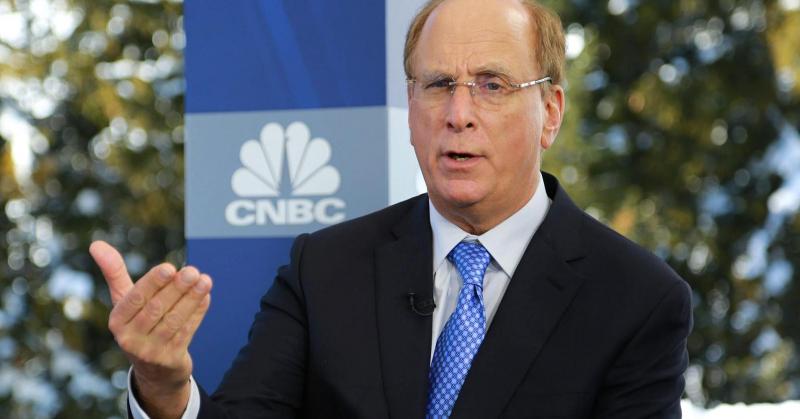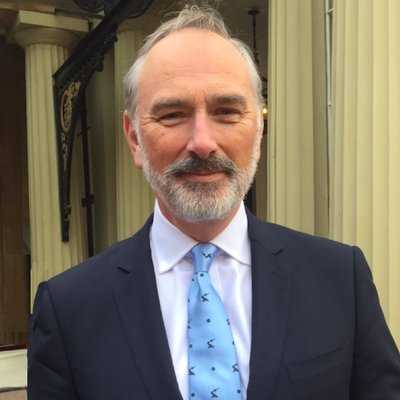John O’Brien of ethical purpose agency ONE HUNDRED says the letter by Blackrock’s CEO is a call for purpose and ethics to be at the heart of corporate behaviour
Last week, Blackrock’s Laurence Fink sent an open letter to the chief executives of some of the world’s largest companies; a letter that has been more than 100 years in the writing. The man whose firm manages more than $6trn in investments may not realise this, but his call to action is part of a progressive set of thinking that goes back to the 19th century, the era of the corporate giants of Carnegie, Rockefeller and Ford, Lever, Boots and Cadbury.
One thing everyone knows is that Blackrock has huge influence over the boards of the world’s largest companies, but in this letter Fink has now extended his influence to the hundreds of millions who are employed by them. Blackrock has put ethical and purposeful leadership into the mainstream expectation of the investment sector and in so doing I believe he will help shape the future of society this century.
In the last 100 years, we have seen the move from corporate community investment to corporate social responsibility. And in the 1980s and 1990s we saw the emergence of the green movement and an ethical marketplace, with pioneers like The Body Shop and Unilever adopting sustainability goals at a global level and rising expectations from government and customers on the ethical credentials behind business.

But the sustainability and CSR agenda hasn’t always run smoothly. Scandals like VW’s emissions “fixing”, the collapse of Bell Pottinger and Libor trading can show how a lack of integrated ethical behaviour and purpose has not created value in the way business investors wanted. On the contrary, such behaviour has wiped billions off the balance sheets and affected many millions of people.
The key weakness in this has been that companies exposed by scandals like these have often at the same time been celebrated for excellent CSR credentials. They have demonstrated impactful community volunteering schemes, recycling or employee welfare programmes and generous charitable foundations. But fundamentally, these companies had CSR initiatives sitting on the periphery of corporate leadership. If the main business decisions are being driven by incentives that stretched ethics, and if short-term profit maximisation is put over long term sustainable growth, then CSR is irrelevant to the way a business is run.
This realisation has proven a wake-up call and has pushed both the charitable organisations in this space to have to reimagine what the purpose of business is about and the corporates to look at how such ethical purpose can be brought into the centre of their business, rather than resting on the sidelines.

So we could, and should, see a different future emerge, a purpose-driven one where businesses are valued not simply just in monetary terms but also by the value they create across different social and environmental measures, and where markets are reformed to price in the value of long term sustainable planning.
We will expect far greater transparency around the way decisions are made that don’t just rest with a small group of people from the same background and these will, with other factors, require new investment and finance models as well as corporate structures.
That’s because infusing purpose at every level of a company’s infrastructure will ensure a sense of collective responsibility, where a company’s ethos will penetrate the way businesses are owned; with more crowdfunded ownership, or conglomerates run as co-operatives, or shares issued for non-transferable multi-generational ownership.
To prosper over time, each and every company must now look not just at delivering financial performance, but must show how it contributes to society as well. To meet Mr Fink’s expectations, the mainstream must embrace the purpose ethos and, in so doing, make what will undoubtedly be the greatest non-technological advance in business thinking we will see this century. The real strength of this message of course, comes not just in its meaning but in who has said it. Fink and Blackrock have now set the level of expectation for what must be the minimum standard that any investor and society at large should be looking for.
John O’Brien MBE has worked at the interface between the corporate and social sectors for 25 years. He is the co-author, with Andrew Cave, of “The Power of Purpose”, published by Pearson, and is European managing partner of ONE HUNDRED, Omnicom’s ethical purpose consortium.
Main image credit: Stuart Monk, Shutterstock



